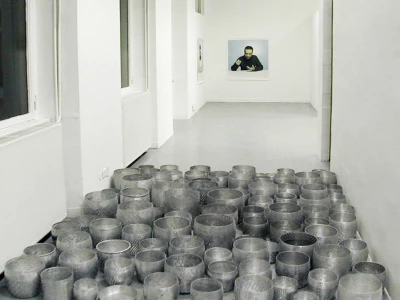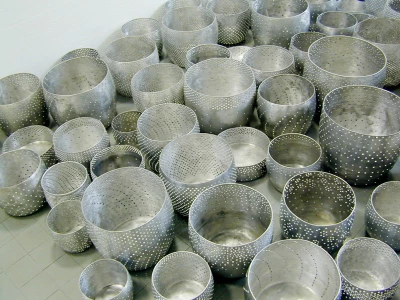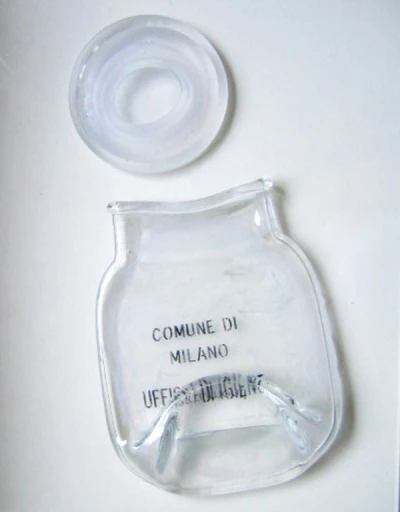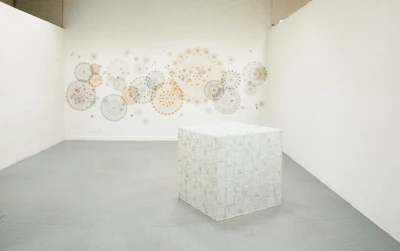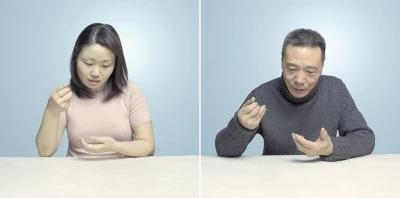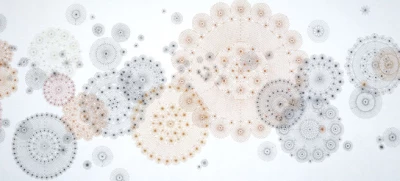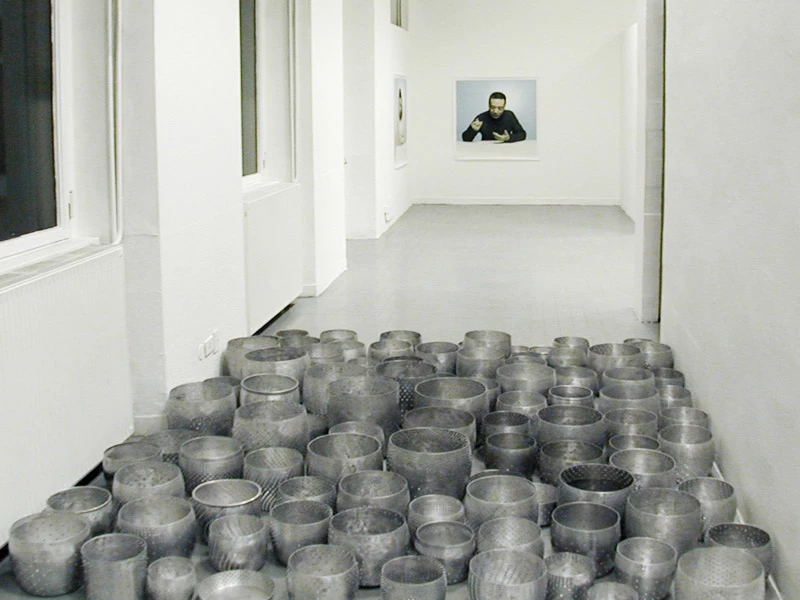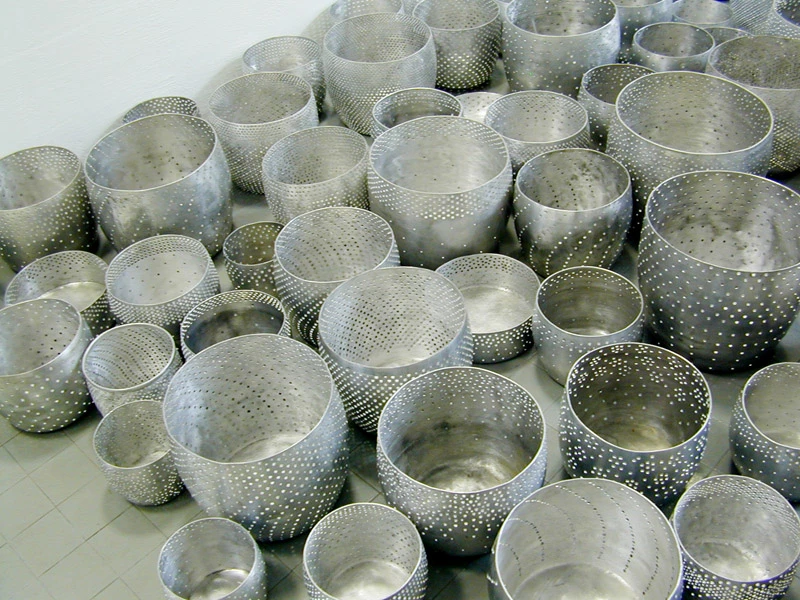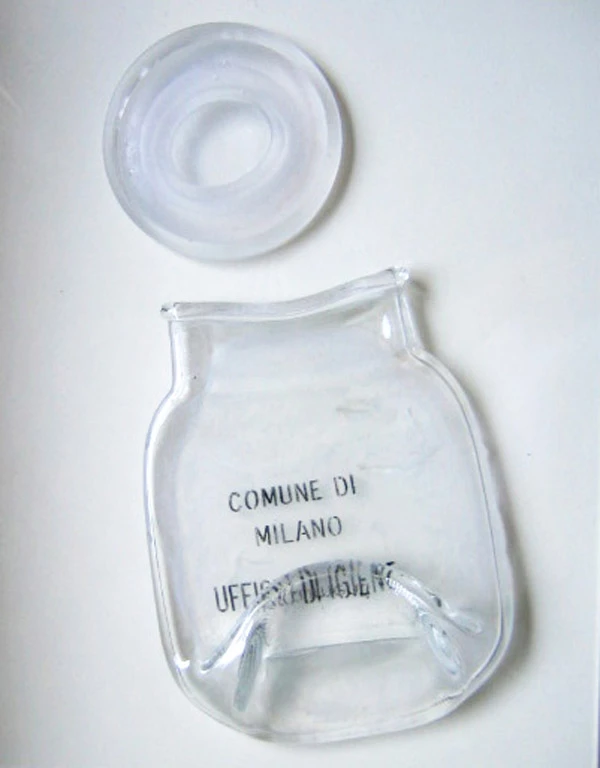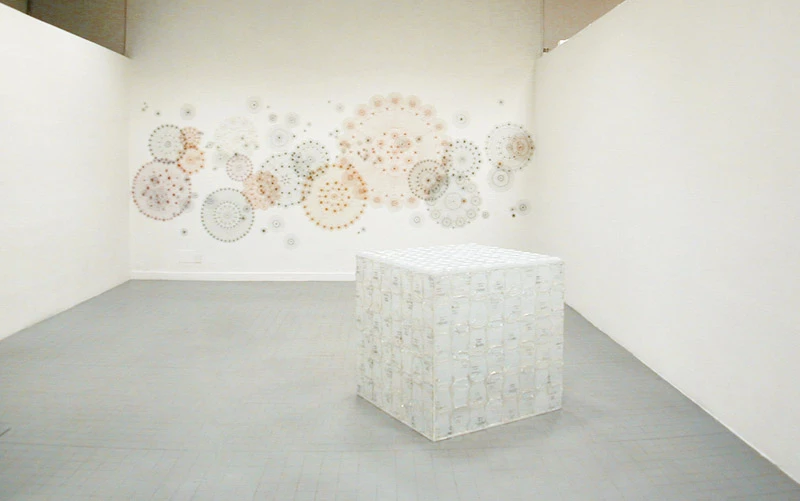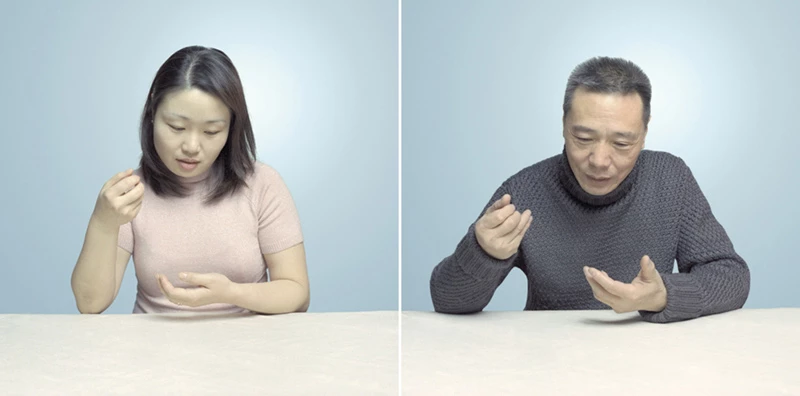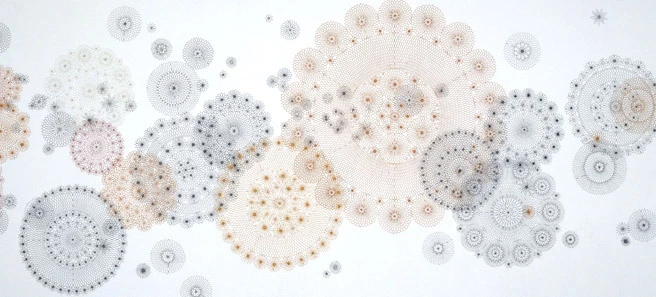Marta Allegri e Nordine Sajot
Marta Allegri (Bologna, 1961) and Nordine Sajot (Corbeil-Essones, 1975) exhibit together in the Milanese space of Careof, in a show that, starting from the reuse of objets trouvés, reflects on domestic everyday life, memory, and the value of repetition.
Marta Allegri presents two installations, united by the intention to give new life to actions and objects evocative of a past that belongs to her. The 100 aluminum pots, already exhibited in her first solo show at Fondazione Bevilacqua la Masa in Venice (2005), are meticulously pierced until they lose their original function; at Careof, they are arranged close to each other, almost forming an archive of everyday memories.
In the second installation, Allegri also composes pre-existing elements, reshaped through an undoing to redo process, based on accumulation and repetition of gestures linked to the feminine universe, such as the act of embroidery. These are large laceworks, but instead of being woven with light cotton threads, the intertwining is made with metal mesh used for fencing poultry, creating embroidery sometimes of imposing dimensions, up to covering an entire wall of the exhibition space.
Nordine Sajot’s work also arises from the reuse of objects already rich in memory. The French artist, who has always been interested in investigating the process of nourishment and observing the utensils necessary to consume and ingest food—considered prostheses, extensions of the body, and cultural vehicles—presents in the exhibition M3 (2006). M3 is a sculpture the size of one cubic meter, created using glass bottles found in the cellars of the building on Via Luigi Nono in Milan, where once the municipal offices were located, but which now house art laboratories like Careof. These containers, labeled “Comune di Milano - Ufficio di Igiene” and, almost imperceptibly, with the embossed inscription “per alimenti” (for food), were used to collect samples of various substances, including water from Milan’s school canteens, to analyze their composition. As a legacy of a shared memory, these containers with their ambiguous appearance become a symbol of a vital and highly topical concern: ensuring that products are edible and not harmful.
For Nordine Sajot, the mass-produced glass bottle is not a simple ready-made, just as Marta Allegri’s large pots are not. And here lies the connection between the two artists: both appropriate objects already charged with meaning, memory, and suggestions, giving them a new appearance and value.
